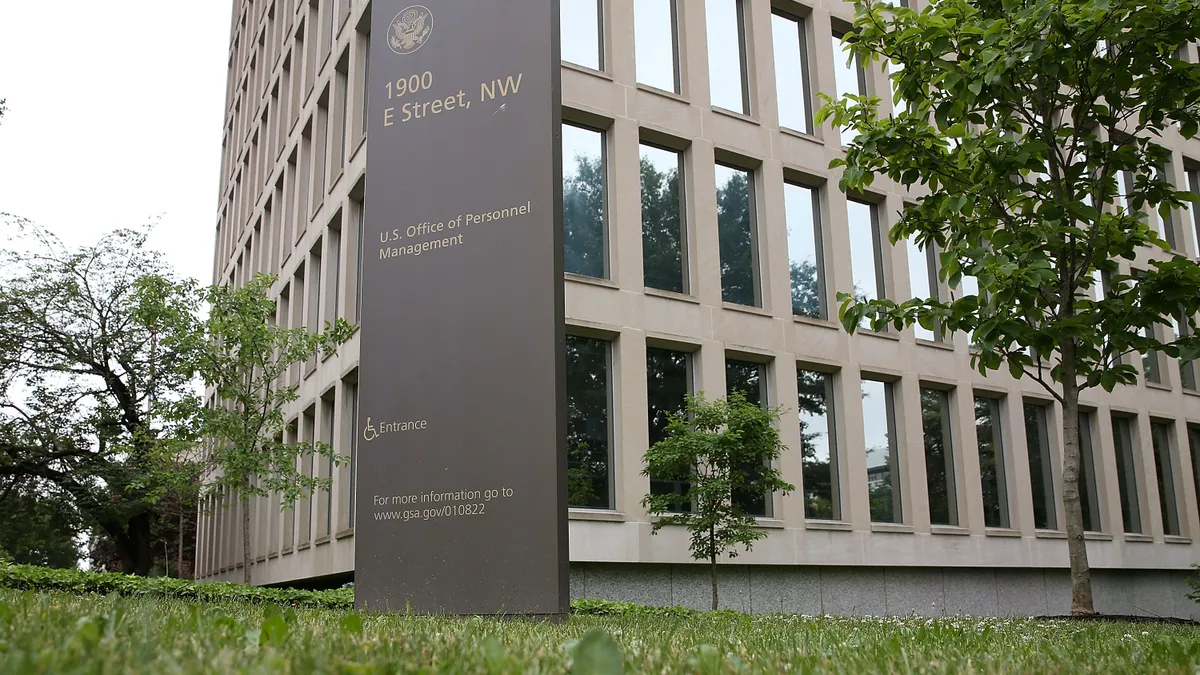Dive Brief:
- Federal agencies have “considerable discretionary authority” to use a variety of pay and flexibility incentives to increase their artificial intelligence talent, U.S. Office of Personnel Management Director Kiran A. Ahuja emphasized in a Feb. 27 memo outlining these strategies.
- For example, agencies may offer up to 25% of basic pay multiplied by the number of years in the service agreement (up to 4 years) to newly appointed employees in — and current employees who must relocate to — difficult-to-fill AI, AI-enabling and other key technical positions, the memo stated.
- Additionally, as a recruitment or retention incentive, agencies may repay federally insured student loans for candidates or current employees of the agency, up to $10,000 each calendar year with the total repayment not exceeding $60,000, according to the memo.
Dive Insight:
In what one news report dubbed an “AI recruiting frenzy,” finding and keeping skilled AI talent has become a priority for most employers, who have said they are willing to hike pay levels 35-43% to secure staff knowledgeable in the technology.
The OPM memo implements an Oct. 30 executive order recognizing the fed’s similar need to hire “dedicated people who want to help us leverage AI responsibly to improve government services, make smart policies and regulations ... and build our research and development,” a recent White House post stated.
HR pros may recognize some of the strategies outlined in the OPM memo. For instance, employee retention is a top operational and HR concern for employers, and companies are adjusting compensation and benefits to improve retention rates, according to one survey.
The pay incentives OPM authorized federal agencies to use — such as those meant to keep highly qualified employees filling a special agency need from leaving the federal government — echo this approach. In that circumstance, agencies can offer up to 25% of basic pay to an individual or 10% for a group. The incentive may be offered even if the employee doesn’t have a nonfederal job offer in hand, the memo said.
The incentives include another familiar recruitment and retention tool — enhancing the employee experience. In this regard, OPM supports agencies using alternative work schedules that differ from the traditional 40-hour/5-day workweek. Doing so would enable “managers and supervisors to meet their program goals while, at the same time, providing employees more flexibility in scheduling their personal activities,” the memo reminded agency officials.
Agencies may also use telework as a flexibility incentive, OPM noted.
“Remote work can allow agencies to recruit and retain high-quality talent from geographically dispersed labor markets [and] reduce costs associated with real estate,” OPM said. Remote work can also “optimize performance and productivity through practices that help agencies sustain continuity of operations when one location is adversely affected by an emergency event,” the memo added.
OPM’s memo follows the U.S. Department of Homeland Security’s Feb. 6 announcement of a “first-ever hiring sprint” to recruit 50 AI experts as part of an “AI Corps” to better leverage the technology to help counter fentanyl, combat child sexual exploitation and abuse, deliver immigration services, secure travel, fortify critical infrastructure and enhance cybersecurity, the announcement said.













